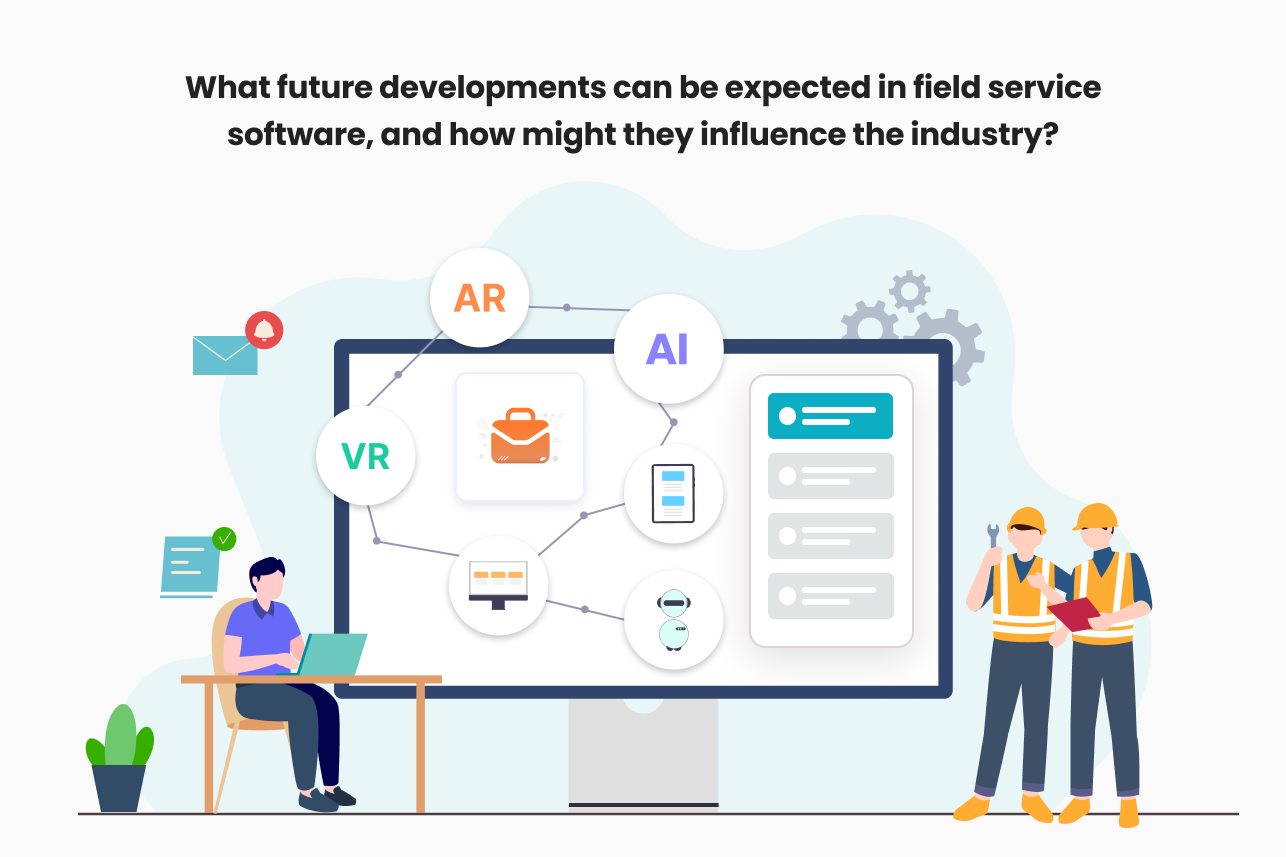The rapid evolution of technology continues to drive significant advancements in field service software, promising to revolutionize the industry. As we look ahead, several key trends and innovations are expected to shape the future of field service software, enhancing efficiency, productivity, and customer satisfaction. This article explores the anticipated developments in field service solution and their potential impact on the industry.
Artificial Intelligence and Machine Learning Integration
One of the most exciting developments in field service software is the integration of artificial intelligence (AI) and machine learning (ML). These technologies enable predictive maintenance, where software can analyze data from equipment to predict failures before they occur. This proactive approach not only reduces downtime but also extends the lifespan of equipment, resulting in significant cost savings for businesses.
AI-driven analytics can also optimize scheduling and dispatching. FSS can analyze various factors such as technician location, skill set, and current traffic conditions to assign the right technician to the right job at the right time. This level of precision improves operational efficiency and enhances customer satisfaction by ensuring timely service delivery.
Internet of Things (IoT) Connectivity
The Internet of Things (IoT) is another transformative force in field service management software. IoT devices can provide real-time data from machinery and equipment, allowing for remote monitoring and diagnostics. Field service software leveraging IoT connectivity can alert technicians to potential issues before they escalate, facilitating preemptive maintenance.
For instance, IoT-enabled sensors in industrial equipment can continuously monitor performance metrics and send alerts when anomalies are detected. This integration allows field service software to act swiftly, minimizing downtime and improving service reliability.
Augmented Reality (AR) and Virtual Reality (VR)
Augmented reality (AR) and virtual reality (VR) are poised to make a significant impact on field service software. These technologies can provide technicians with immersive training experiences and real-time assistance during service calls. For example, AR can overlay digital information onto physical equipment, guiding technicians through complex repairs with visual instructions.
FSS incorporating AR and VR can reduce the learning curve for new technicians and improve the accuracy of repairs. This not only enhances service quality but also reduces the need for follow-up visits, leading to increased customer satisfaction and lower operational costs.
Enhanced Mobile Capabilities
As the workforce becomes increasingly mobile, FSS must adapt to meet the needs of technicians in the field. Enhanced mobile capabilities are essential for ensuring that technicians have access to all necessary information and tools, regardless of their location. Future developments in field service software will likely focus on improving the user experience on mobile devices, providing seamless access to job details, customer information, and real-time updates.
Advanced mobile FSS will also support offline functionality, allowing technicians to continue working in areas with poor connectivity. This ensures that service delivery remains uninterrupted, even in remote locations.
Advanced Analytics and Reporting
Data is a critical asset in the field service industry, and advanced analytics and reporting capabilities are essential for leveraging this data effectively. Future field service software will likely offer more sophisticated analytics tools, enabling businesses to gain deeper insights into their operations. These insights can drive strategic decision-making, from identifying trends and patterns to optimizing resource allocation and improving service delivery.
Advanced reporting features will allow businesses to track key performance indicators (KPIs) and measure the effectiveness of their field service operations. By analyzing data on technician performance, service times, and customer feedback, companies can continuously refine their processes and enhance overall efficiency.
Increased Focus on Customer Experience
Customer experience is becoming a central focus for field service organizations, and future developments in field service software will reflect this shift. Enhanced customer portals and communication tools will empower customers to schedule appointments, track service progress, and provide feedback with ease. Field service software that prioritizes customer experience will help businesses build stronger relationships with their clients, leading to higher satisfaction and loyalty.
Additionally, integrating customer relationship management (CRM) systems with field service software can provide a comprehensive view of customer interactions and history. This integration enables more personalized service, as technicians can access detailed customer profiles and tailor their approach based on individual needs and preferences.
Cloud-Based Solutions and Scalability
Cloud-based field service management software solutions offer numerous advantages, including scalability, flexibility, and reduced IT overhead. As more businesses transition to the cloud, future field service will likely offer enhanced cloud capabilities, allowing for seamless data access and collaboration from any location.
Cloud-based FSS also facilitates easier updates and maintenance, ensuring that businesses always have access to the latest features and security enhancements. This scalability is particularly beneficial for growing businesses, as it allows them to expand their operations without significant investments in additional infrastructure.
Conclusion
The future of field service software is bright, with numerous developments poised to transform the industry. From AI and IoT integration to enhanced mobile capabilities and a focus on customer experience, these advancements will drive efficiency, productivity, and satisfaction to new heights. By staying ahead of these trends and embracing innovative field service solutions, businesses can position themselves for success in an increasingly competitive landscape.
Investing in advanced FSS not only streamlines operations but also provides a significant competitive edge. As technology continues to evolve, the potential for further innovation in field service management software is limitless, promising a future where service delivery is more efficient, proactive, and customer-centric than ever before.
